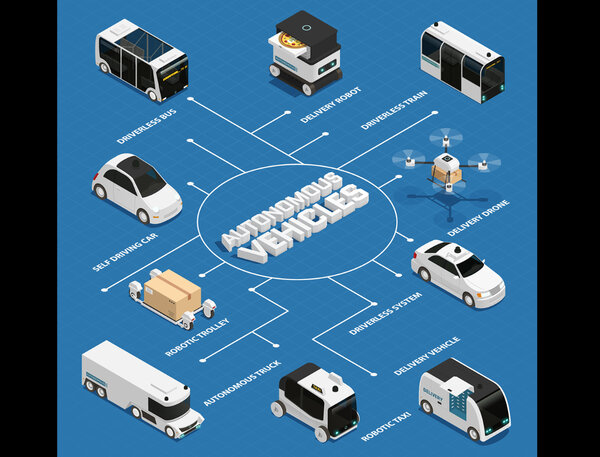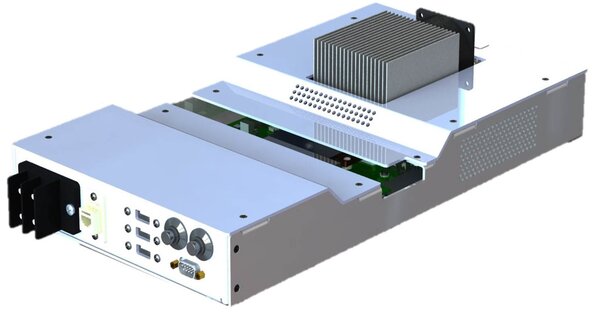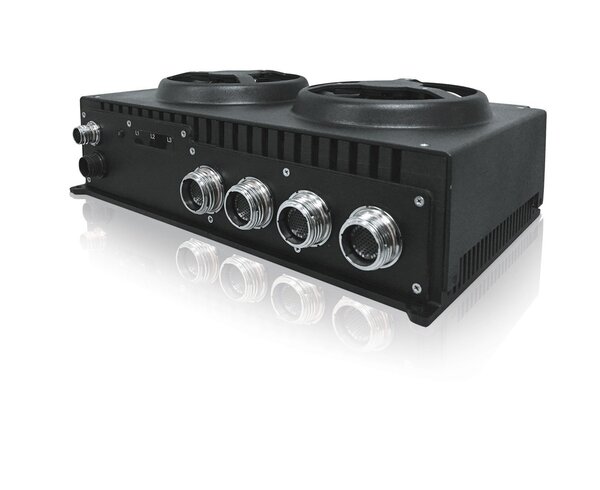
Climate scientists, urban developers, citizen initiatives, as well as many local politicians, stress it like a prayer wheel: traffic in and around cities must change. Changing traffic patterns is the only way; the collapse of urban infrastructure be avoided, and our towns remain worth living in.
For a long time, the topic of urban congestion was kept flat or even smiled upon; however, current developments show that a rethink is urgently needed. Different forms of transport and mobility must be combined to enable comfortable and congestion-free progress while benefiting the climate.
Embedded computing is an essential engine for all applications that modern traffic needs. Integrated solutions enable intelligent data transfer between different vehicle types. At the same time, they facilitate traffic planning and control. Another building block for future-oriented traffic concepts is wireless communication, such as the new 5G mobile communications standard. Not to forget about Industry 5.0 that will help to combine various capabilities to help generate smart solutions. Experts agree: only the combination of various components will help to meet the requirements of future traffic.
Interaction between man and machine
Research into technologies that enable an infrastructure with which traffic is optimized in smart cities and is in full swing worldwide. In this context, the term industry 5.0 is appearing more and more frequently. Yet there is no universally valid definition of the term. However, it is obvious that bundling the capabilities of people, machines, and software is paramount and promises new possibilities for the development of autonomous vehicles. The combination of several technology approaches such as Deep Learning, Software Defined Trains (SDT), Advanced Internet of Things (IoT), Big Data, Mobility as a Service (MaaS) and much more will also help.
The development of Autonomous Vehicles (AV) has now picked up speed. Nearly all major automobile manufacturers worldwide are working on solutions. Additionally, there are prototypes that can also be used in local public transport, the so-called Robocabs. Kontron has been working closely with major automotive companies for years to support the growth of autonomous driving. We can contribute our HPEC (High-Performance Computing) and our experience with robust platforms to drive the development of autonomous vehicles. And the experts in our development department have already brought numerous solutions for modern traffic to market maturity.
Autonomous driving requires smooth data flow
The platforms associated with AV High Performance Embedded Computing (HPEC) do not require large central servers but offer nearly their capabilities. Vehicles can make their own decisions using sensors, 3D maps, and real-time data. Mobile, interconnected gateways ensure uninterrupted data exchange. In this way, autonomous solutions can be deployed in almost any environment.

Kontron EvoTRAC™ S2000
Kontron provides developers of autonomous systems with a range of tools that can be used to develop practical solutions. With the Kontron EvoTRAC™ S2000 development platform, for example, developers can test and validate solutions on the same hardware and interfaces that will be used in the next production of autonomous vehicle systems. The platform features an integrated, scalable Intel® Xeon® 8160T 24 core processor and an expansion slot for full GPU, FPGA accelerator and video PCIe cards as well as a modular, robust carrier board.
Open System Architecture Drives Innovation
Kontron's EvoTRAC S1901 is a platform for open system architecture based on COM Express®. It meets the demanding HPEC requirements of advanced sensor processing, artificial intelligence or deep learning used in autonomous vehicle systems. The powerful computer platform also meets the current requirements of the transport ecosystem. By using the Kontron EvoTRAC S1901™ or S2000 platforms, system designs with increased connectivity, remote monitoring functions, and system interoperability are realized.

Kontron EvoTRAC S1901™
Open system architectures also help streamline development and drive innovation. This enables development companies to achieve significant competitive advantages. By using modular open system architectures, components can be reused across multiple platforms and applications saving both time and money.
Users are open for the use of Robocabs
Even though autonomous driving is still in the test phase, it will establish itself as an alternative form of transport. However, success also depends on potential users. A study conducted internationally by the Fraunhofer IAO, and the ISOE (Institute for Social-Ecological Research in Frankfurt/Main) with the support of the German Federal Ministry of Transport and Digital Infrastructure (BMVI) shows how high the acceptance in society is.
To survey the user's perspective, a total of around 2,400 participants in Germany, China, and the USA were surveyed and conducted in-depth interviews about Robocabs. The study aimed to gain a better understanding of the user's view of automated vehicles. Accordingly, sustainability is an important criterion. The results of the study show that the respondents are very open-minded about the mobility concept of a Robocab. Acceptance is currently highest in China, followed by the USA and Germany.
In addition to an expansion of the mobility offer, the interviewees see above all the elimination of the search for a parking space, greater flexibility and permanent availability as the most convincing factors for the use of Robocabs. Because autonomous vehicles can be flexibly adapted to demand and at the same time offer the possibility of taking them with them, the study participants believe that optimal vehicle utilization is ensured. The participants therefore assume that this will optimize traffic and make it more efficient. In addition, the respondents expect that "user groups such as minors or elderly people, who have so far been largely excluded from individual transport, will also have the opportunity to move around independently, flexibly and comfortably." The study (in German) can be downloaded free of charge here.
Meet Kontron at the AV-Symposium in Florida
The importance of AV is also underlined by a symposium that will take place from 15 to 18 July 2019 at the Orlando World Center Marriott. More than 1,800 participants and 50 exhibitors from all over the world are expected to attend. The entire range of autonomous driving will be discussed in numerous breakout sessions and lectures.
I would like to invite you specifically to a panel of experts that will take place on Wednesday, 17 July 2019 at 1:30 pm in Room Grand 10. I have invited high-caliber speakers to discuss the key technologies that will shape the landscape of autonomous vehicles in the future. The discussion will focus on the challenges we have faced in the numerous pilot projects so far, but we will also look into the future and at the technologies that will help us master the challenges.
See you in Florida? Here is the link to our event!
Do you believe that autonomous vehicles will prevail? Would you use Robocab in the city? Do you believe that autonomous vehicles will prevail?
Pictures: Kontron AG, cover picture: AdobeStock

{{comment.comment}}